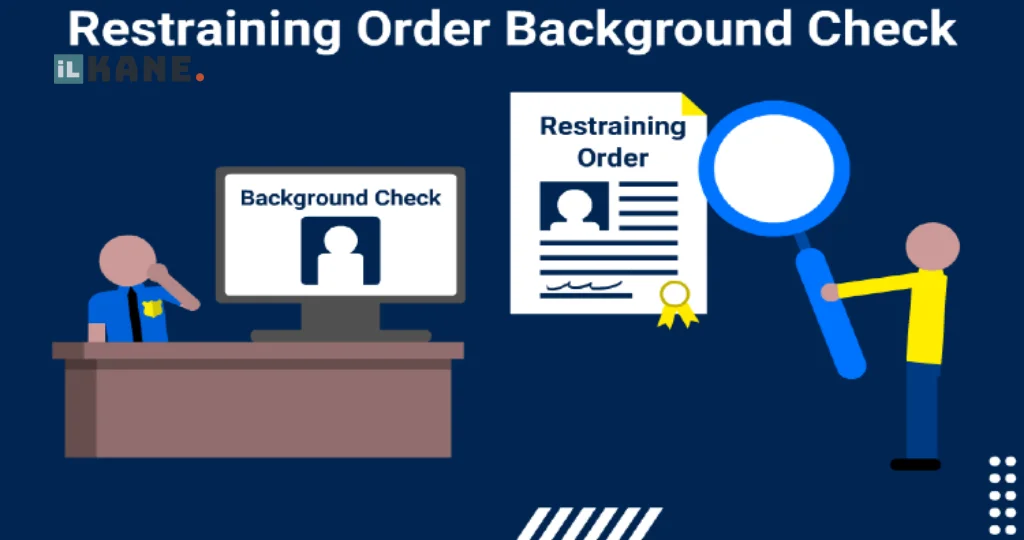How Background Checks can Impact Your Employment Prospects when Dealing with Restraining Orders Introduction: Welcome to our blog! Today, we will explore an important topic that often goes unnoticed – how restraining orders can affect your employment opportunities from a background check perspective. Many individuals may not realize the potential consequences that restraining orders can have on their professional lives.
Understanding Background Checks:
Background checks have become an integral part of the hiring process for many employers. They aim to ensure the safety of the workplace and protect the company’s reputation. These checks typically involve verifying an applicant’s identity, education, employment history, criminal records, and, relevant to our discussion, any existing restraining orders.
Impact of Restraining Orders on Employment Opportunities:
When it comes to restraining orders, employers are often concerned about potential risks and liabilities. They seek to safeguard their employees and clients, making background checks an essential step in the hiring process. If a restraining order appears on your background check, it can negatively impact your employment prospects. Let’s delve into some of the reasons why.
Perception of Unresolved Conflicts:
A restraining order indicates that there was a situation involving conflict, potentially involving violence or harassment. Employers may perceive this as a lack of conflict resolution skills, an inability to work well with others, or potential risks to workplace safety. This perception can significantly impact their decision to hire you.
Impact on Work Relationships:
Employers value teamwork and collaboration in the workplace. A restraining order may raise concerns about your ability to maintain professional relationships and work effectively with colleagues, particularly if the order involves someone you may come into contact with at work. This can create hesitation in hiring you, as it may disrupt team dynamics and affect overall productivity.
Reputational Risks:
Companies strive to maintain a positive reputation in the market. Hiring an individual with a history involving restraining orders could potentially tarnish their image. Employers are cautious about associating their brand with any negative publicity, which could lead to lost customers and damage their business. Consequently, they may opt to choose another candidate who does not carry such concerns.
Navigating the Impact:
While restraining orders can affect your employment opportunities, it is essential to remember that every situation is unique. Here are a few suggestions to help you navigate this challenging situation:

Honesty and Transparency:
During the application process, consider addressing the restraining order discreetly with your potential employer. Be honest and transparent about the circumstances and provide any relevant information that demonstrates personal growth, maturity, and a commitment to maintaining a safe and professional work environment.
Personal References:
Strong personal references can play a vital role in mitigating concerns about restraining orders. Positive recommendations from reputable sources who can vouch for your character and ability to work well with others can help alleviate some of the doubts employers may have.
Professional Development:
Engaging in professional development opportunities, such as conflict resolution training or counseling, can showcase your commitment to personal growth and acquiring the necessary skills to prevent similar situations from arising again. Highlighting such initiatives on your resume or during interviews can positively influence how employers perceive your ability to handle conflicts in the workplace.

Restraining orders can undoubtedly have an impact on your employment opportunities from a background check perspective. Understanding how employers view this information is crucial for navigating the challenges that may arise. By being honest, providing context, and demonstrating personal growth and development, you can increase your chances of successfully overcoming the potential obstacles associated with restraining orders. Remember, every situation is unique, and with the right approach, you can still pursue a fulfilling career path.
Exploring the Relationship Between Restraining Orders and Background Checks:
Welcome to our latest blog post! Today, we are delving into a topic that is often surrounded by confusion and uncertainty: the relationship between restraining orders and background checks. Whether you are a concerned individual, an employer, or simply curious about the intricacies of this legal intersection, we are here to shed light on the subject in a friendly and approachable manner.
Understanding Background Checks:
Before we dive into the connection between restraining orders and background checks, let’s first establish a basic understanding of what a background check entails. A background check is a process where an individual’s personal, criminal, and professional history is reviewed. Employers, landlords, and even individuals may conduct background checks to gain insight into someone’s character, reliability, and trustworthiness.
The Role of Restraining Orders:
Restraining orders, also referred to as protection orders, are official legal documents created to safeguard individuals from possible harm or harassment. They are typically issued by the court and prohibit an individual from contacting or coming near the person who sought the order. Restraining orders can be obtained in cases of domestic violence, stalking, harassment, or any situation where one’s safety is at risk.
The Connection:
Now that we have a clear understanding of background checks and restraining orders, let’s explore how these two concepts intertwine. When an individual applies for a job or a rental property, it is not uncommon for the employer or landlord to conduct a background check. During this process, they may uncover the existence of a restraining order against the applicant.
Impact on Background Checks:
It’s important to note that restraining orders themselves do not appear on standard background checks. However, certain information related to the restraining order, such as arrests or convictions associated with the order, may show up on a person’s criminal record. This is where the connection between restraining orders and background checks becomes relevant.
Employer Considerations:
For employers, the presence of a restraining order on an applicant’s criminal record may raise concerns about their character, potential workplace conflicts, or the safety of other employees. However, it is essential to approach this information with sensitivity and fairness, as not all restraining orders indicate guilt or a propensity for violence. It is important for employers to evaluate each situation on a case-by-case basis and consider additional factors, such as references, work history, and interviews, to make an informed decision.
Individual Considerations:
Individuals who have obtained a restraining order may wonder how it will impact their future job prospects or rental applications. While the existence of a restraining order may be a cause for concern for some employers or landlords, it is crucial to remember that everyone is entitled to due process and fair treatment. Communicating openly and honestly about the circumstances surrounding the restraining order may help address any potential misunderstandings during the background check process.
The relationship between restraining orders and background checks is complex and nuanced. While restraining orders themselves do not typically appear on background checks, associated criminal records may come to light. Employers and individuals alike must approach this information with fairness, sensitivity, and an understanding of the larger context. By navigating this intersection thoughtfully, we can foster a safer and more inclusive environment for all.
How to Navigate the Impact of a Restraining Order on Background Checks:
Welcome, dear readers! We understand that dealing with legal matters can be overwhelming, especially when they have the potential to impact your future. If you’re currently facing or have faced a restraining order, it’s crucial to understand how it can affect background checks. In this blog post, we’ll provide you with valuable insights and guidance on how to protect yourself and your future. So, let’s dive in and explore the world of background checks!
Understanding Background Checks:
Before we discuss the impact of a restraining order, let’s briefly explore background checks. A background check is a comprehensive review of a person’s criminal, financial, and personal records. Employers, landlords, and lending institutions often conduct these checks to make informed decisions about potential candidates or tenants.
Impact of a Restraining Order on Background Checks:
When it comes to background checks, a restraining order can indeed have implications. While it may not directly appear on a background check report, certain elements associated with a restraining order might raise concerns for employers or others conducting the check.
Criminal History:
If a restraining order arises from a criminal case, it’s important to remember that the underlying criminal charges may still be visible on a background check, even if the restraining order itself isn’t explicitly mentioned. Employers may interpret this as a red flag, so it’s crucial to be prepared to address these concerns during the hiring process.
Inconsistencies in Employment History:
A restraining order can often lead to changes in employment or gaps in work history. These inconsistencies may raise questions during the background check process. It’s essential to be proactive and transparent, explaining any gaps in employment and providing necessary documentation to validate your reasons.
Personal Relationships:
Background checks sometimes involve interviews with references, neighbors, or personal contacts. If a restraining order involves someone who may be contacted during this process, it’s essential to be prepared for potential questions or inquiries. Maintaining open communication and addressing any concerns can help you navigate this situation effectively.
How to Handle the Impact:
Now that we’ve discussed the potential impact, let’s focus on how you can handle it effectively:
Seek Legal Guidance:
Consulting with a legal professional who specializes in restraining orders can provide you with valuable advice and insights. They can help you understand your rights, obligations, and potential future implications.
Document Everything:
Maintaining detailed records of all related communications, court orders, and other pertinent documents is crucial. This documentation can serve as evidence and assist you in explaining the situation during background checks.
Prepare an Explanation:
Be prepared to discuss the restraining order in an interview or when asked during the background check process. Craft a concise and honest explanation that emphasizes personal growth, the steps you’ve taken to move forward, and any relevant positive changes in your life.
Conclusion
Navigating the impact of a restraining order on background checks can be challenging, but it’s not insurmountable. By understanding the potential implications, seeking legal guidance, and being proactive, you can protect your future and ensure a positive outcome. Remember, everyone has a past, and it’s how we handle it that truly matters. Stay positive, stay focused, and embrace the opportunities that lie ahead!
Disclaimer: The information provided in this blog post is for general informational purposes only and should not be considered as legal advice. It is always recommended to consult with a legal professional for personalized guidance tailored to your specific situation.
